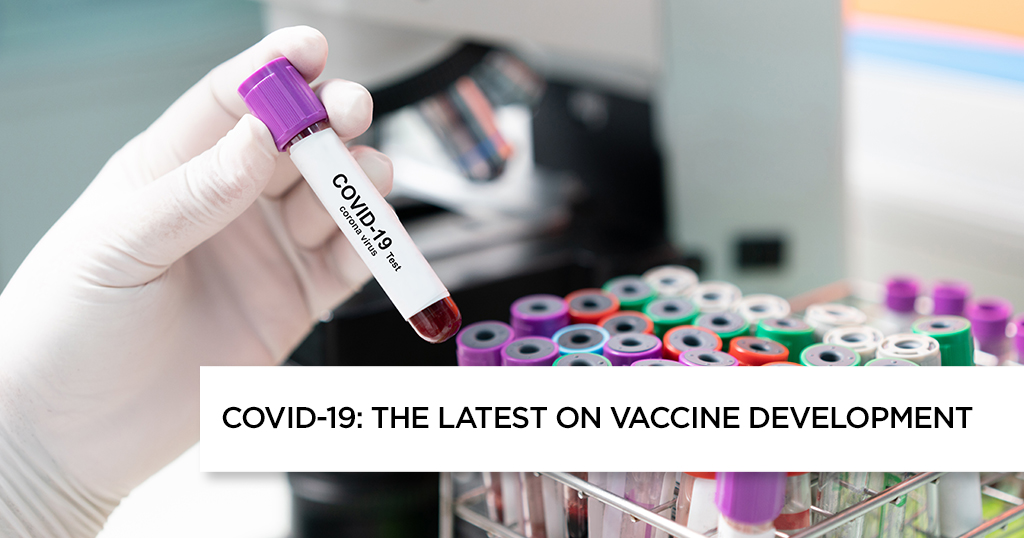As COVID-19 is spreading rapidly worldwide, scientists are pushing hard to develop a vaccine for the pandemic. Social distancing and vaccine seem to be the only two ways at the moment to stop the spread of COVID-19 that has led to lockdown extensions worldwide.
Why is COVID-19 vaccine important?
The COVID-19 virus spreads quickly, and the majority of the population across the world are still vulnerable to it. Developing a vaccine may provide some protection by training the immune system of the people to fight the virus, so they do not become sick. Besides, this may also allow lockdowns to be lifted safely and relaxing of social distancing rules.
What progress is being made in developing the vaccine?
Research is taking place at breakneck speed. Many groups (about 80 groups) around the world are researching vaccines, and a few are already entering clinical trials now.
A few weeks back, scientists in Seattle, US have announced the first human trial for a vaccine.
Two pharmaceutical giants, GSK and Sanofi, have teamed up to develop a vaccine.
Scientists from Australia have already begun injecting ferrets with two potential vaccines. It is the first comprehensive pre-clinical trial for COVID-19 vaccine involving animals. Researchers hope to test this on humans by the end of April 2020.
Meanwhile, scientists at the University of Oxford, UK have started human trials from 23 April 2020 and are planning to have a million doses of vaccine ready by September 2020.
However, no one knows how effective any of these vaccines will be.
What needs to be done still?
While multiple research groups have started designing potential vaccines, there is much more work to do.
Trials have to show that the vaccine is safe and effective. The vaccine will not be useful if it causes more problems than the disease itself. Besides, clinical trials also have to show that the vaccine provokes an immune response that would protect people from getting ill. A way to mass-produce the vaccine needs to be developed for the billions of possible doses, and the relevant regulators should also approve it before it can be administered.
Lastly, there will be an enormous logistical challenge of inoculating most of the population around the world. And, lockdowns may make this process slower as fewer individuals are infected, making it longer to understand whether the vaccine is working.
While the idea of giving individuals the vaccine first and then infecting them deliberately (called a challenge study) may give quicker answers, it can be dangerous and unethical when there is no known treatment.
How many people have to be vaccinated?
While it is hard to know without understanding how effective the vaccine will be, it is estimated that about 60 – 70 per cent of people should to be immune to the virus to stop it from spreading quickly. But, the numbers could go up to billions of people across the world if the vaccine worked perfectly.
Who would get a vaccine?
If an effective vaccine is developed, then the supply will be limited initially. Therefore, it is important to prioritise.
However, healthcare workers who are on the frontline, who come into contact with COVID-19 patients should be the first in the list. The second in the line should be older individuals as the disease is most deadly in this age-group. But, it is equally important to vaccinate those living with or caring for the elderly too.
The Bottom Line
There is a lot of uncertainty with vaccine development and there is no guarantee that any of the potential vaccines may work. While we have to ensure that the vaccine is safe, we also have to ensure that the vaccine will elicit enough immune response.
Like all drugs, potential vaccines also have to pass through the same clinical trial stages, which is important, especially when it comes to safety.
University of Pittsburgh coronavirus vaccine
Scientists at UPMC and the University of Pittsburgh School of Medicine have announced a potential vaccine against SARS-CoV-2, the new coronavirus causing the COVID-19 pandemic. When tested in mice, the vaccine produces antibodies specific to SARS-CoV-2 at quantities thought to be enough to neutralize the virus. The vaccine is delivered through a fingertip-sized skin patch. The research team calls this vaccine PittCoVacc, short for Pittsburgh Coronavirus Vaccine. The trials will be starting soon.
Read More Other Covid-19 Blogs:
Which Hand sanitizer is effective against Corona Virus?
Impact of COVID-19 on People with Diabetes
Does coconut oil help in COVID-19?
What is the role of Apple cider vinegar in coronavirus infection ?


















